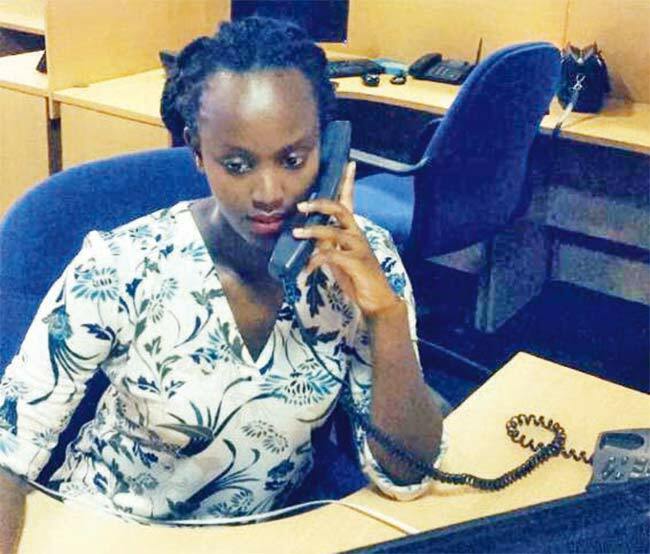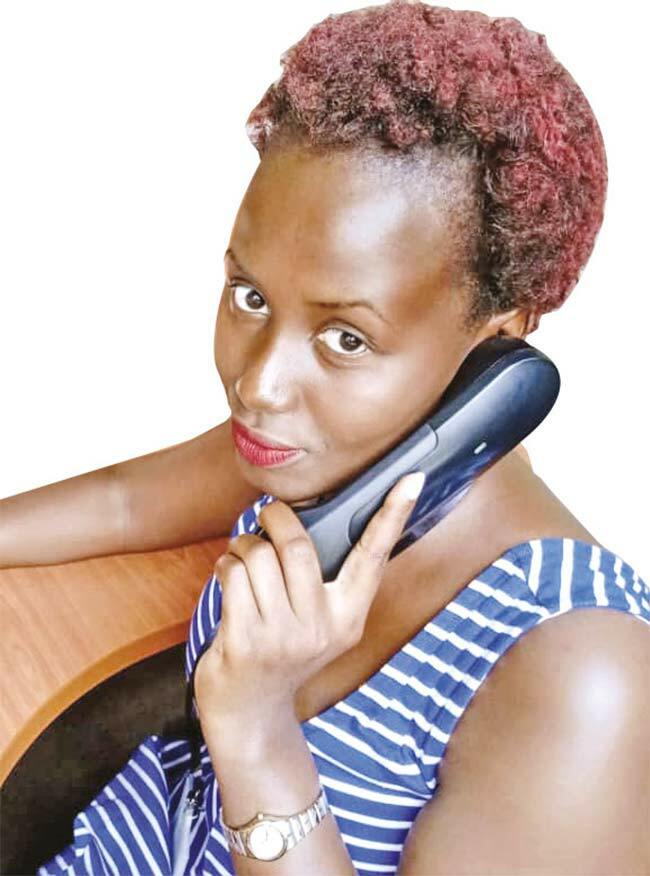COVID-19: young men, women dedicated to call centre
One of them is Gloria Keza, a 23-year-old, who got “married” to the call centre. Like many others at the centre, Keza last slept in a warm bed at her home in Najjanankumbi in mid-March.
UNSUNG HEROES | COVID-19
KAMPALA - New Vision is celebrating people who are offering selfless service in the fight against the coronavirus (COVID-19). Martin Kitubi brings you the story of call centre agents attached to the health ministry, who receive a large volume of calls in their bid to help Ugandans
Passing by the health ministry headquarters in Kampala, you may think there are no people.
The place is not as busy as it was before the outbreak of the coronavirus (COVID-19) pandemic. However, inside the Nakasero complex on Lourdel Road are unsung heroes and heroines. These people are not medical professionals for which the health ministry is known, but a group of young men and women receiving phone calls at the ministry emergency call centre.
Gloria Keza
One of them is Gloria Keza, a 23-year-old, who got "married" to the call centre.
Like many others at the centre, Keza last slept in a warm bed at her home in Najjanankumbi in mid-March.
The presidential directive banning both public and private transport meant she had to stay at her place of work.
Given the restrictions on public transport due to the COVID-19 lockdown, the health ministry rented a hostel for Keza and her colleagues to minimise disruption of duty.
"In the beginning, we were overwhelmed by phone calls. We ended up staying at one workstation for 12 hours. I couldn't afford to leave," she said.
 Keza says she misses her home but is happy to serve
Keza says she misses her home but is happy to serve
During an interview on Thursday during her shift break, Keza could not tell the date.
She said: ‘‘It is hectic here. We have lost count of dates and time. We work in shifts, day and night."
Much as she misses home, Keza is happy to serve the country as it responds to the global pandemic.
"This is a test for myself and the team. We have learnt to be calm while responding to phone calls. Some people would call into abuse, scold and call us names. Even with these challenges, our focus has been taking note of what they are saying and calmly handling the caller," she said.
Ronald Angarukamu
Keza's story is similar but different from Ronald Angarukamu's. He is a communication officer at the Uganda Industrial Research Institute (UIRI), which falls under the science and technology ministry.
Angarukamu, who left behind his wife and their two-year-old son a month ago, volunteered to serve as a call centre agent when the health ministry called for volunteers.
With the approval of his supervisors at UIRI, he was allowed to work with the ministry to combat the virus.
However, his decision to serve at the call centre did not please his wife. "She was worried that I was going to work at Mulago Hospital, where COVID-19 patients were being treated. I presented evidence to her that I was going to work with the emergency call centre," he said.
"I miss my family, I miss everything about our home," he added. Angarukamu gets a day off every week to visit his family and says he is happy to serve his country. "I am happy to have helped the needy in the middle of the night. From expectant mothers to those who need medical evacuations. It is a great experience," he said.
What they do
The emergency call centre is used for, among others, to respond to cases across the country. It is also used to give feedback and sensitise people on outbreaks, among others.
Gloria Natukunda, a communications officer at the health ministry, who is also working with emergency call centres, said they have received phone calls from in and outside Uganda since the first COVID-19 case was confirmed in the country.
She said they would receive about 100 phone calls a day. However, during pandemics such as Ebola, Marburg and Crimean-Congo haemorrhagic fever, among others, the numbers would shoot to over 1,000 calls a day.
However, with the coronavirus, on average, the call centre would receive an estimated 10,000 calls a day.
"The coronavirus has been a test for the call centre. In the beginning, we were overwhelmed until the telecommunication companies and other stakeholders came in," Natukunda said.
 Gloria Natukunda at her workstation in the call centre
Gloria Natukunda at her workstation in the call centre
Equipping the centres
In the beginning, Natukunda said the call centre had about 10 agents. However, the ministry increased the number to over 100. These, she said, were subdivided and were redeployed at telecommunication companies, the ICT ministry headquarters and other centres.
In addition, the call centre adopted a 24-hour service, which she said has helped them respond to emergencies in the country.
"We have not only helped locate coronavirus cases but responded to other medical evacuations across the country too," she said. Adding that: "In the night, we receive phone calls from expectant mothers and link them to ambulance services," Natukunda said.
However, she said certain unscrupulous people call just for fun. "Some people call us asking for spouses, but we calmly respond to them. Such cases had caused congestion on the landlines," Natukunda said.
At the moment, she said, the pressure on the call centre has reduced, which she attributed to the sensitisation programmes being run on different platforms by the ministry.
Good work
Emmanuel Ainebyona, the senior public relations officer at the health ministry, says the call centre has enabled them to trace COVID-19 patients.
Following calls from the ministry, he said Ugandans who had a travel history and had not been tested were traced using the call centre. "It would have been a challenge to tracing these people without the call centre. When we issued these emergency numbers, people started calling and we located them," Ainebyona said.
‘‘It has also been used to sensitise Ugandans on COVID-19. It has served the intended purpose of linking us to places we could not reach,'' he added.